This past school year, colleges and universities saw some of the most embarrassing displays of student and faculty behavior ever witnessed in modern history.
Bolstered by a grievance culture that promotes victimhood, campus protesters demanded “safe spaces” from ideas they disagreed with and “trigger warnings” on readings that might make them uncomfortable. They accused those whose comments might seem slightly insensitive of committing “microaggressions.”
They commanded their college administrations to change the names of buildings by judging past actions by today’s standards. They protested speakers who they found controversial and they labeled as “hate speech” anything they found objectionable.
It was a year of humiliation for institutions of higher education, which found administrators giving in to the absurd and petty demands of the students they were supposed to be preparing for life as adults.
At Lebanon Valley College, students wanted to change the name of the “Lynch Memorial Building” because of the the word “lynch.” It didn’t matter that “Lynch” obviously referred to the name of a person — these special snowflakes couldn’t handle seeing the word without his first name attached.
At Columbia, students requested a trigger warning to accompany Ovid’s “Metamorphoses” because it contained a passage alluding to the rape of the Greek goddess Persephone.
The thinking, as it goes, is that anyone in the classroom who might have been raped (or a low-income student or student of color, according to the students who demanded the warning) would be traumatized if they were not adequately prepared for what they were about to read.
Nor is this infantilization the end to contemporary student entitlement.
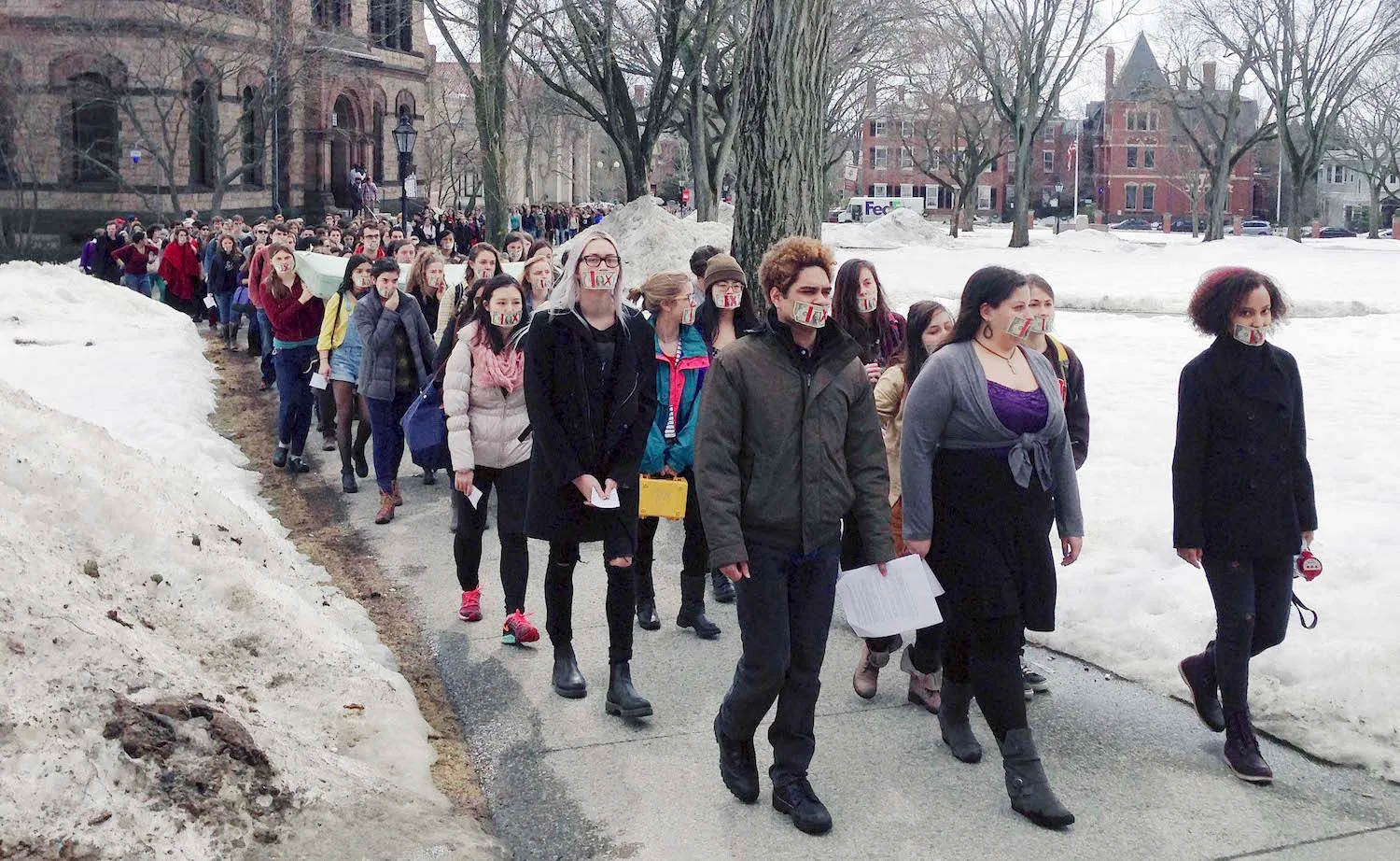
It was a year of humiliation for institutions of higher education, which found administrators giving in to the absurd and petty demands of the students they were supposed to be preparing for life as adults. (AP Photo)
In the University of California system, professors were warned to not use common phrases like “America is the land of opportunity” or “I believe the most qualified person should get the job” because even these cliches could be considered microaggressions.
Microaggressions are words or phrases that a person doesn’t mean as offensive, but that can be deemed offensive by an especially sensitive person — or by someone looking for attention by making themselves into a victim.
And of course, there was the episode at the University of Missouri, in which an assistant professor in the Communications Department actually assaulted a student journalist and asked for some “muscle” to keep him from filming the protests.
This is all before we get into the new tradition of disinviting commencement speakers who are vigorously protested by students who dislike some or all of the speaker’s views. Oftentimes these speakers get “disinvited” and the schools even issue an apology for daring to provide students with exposure to people with views not identical to their own.
This past year, the usual protests surrounding conservative speakers abounded, as former House Speaker John Boehner, Sen. Jeff Sessions, former Breitbart Editor Ben Shapiro and current Breitbart Editor Milo Yiannopoulos all received varying degrees of backlash for being invited to speak. For the latter two, violence actually broke out during the protests — started by the protesters.
But this year saw some resistance to liberal speakers as well. Some Notre Dame students disagreed with the school’s choice to present Vice President Joe Biden with a Catholic award because he was deemed “rabidly partisan” and for his support of abortion.
Scripps College’s decision to invite former Secretary of State Madeleine Albright (who served under President Bill Clinton) to speak was criticized for her tenure and support of policies which “led to the deaths of millions of people.” One wonders if any secretary of state could ever be considered worthy to speak under these circumstances.
When it comes to free speech on college campuses, perhaps no group has been a more staunch supporter than the Foundation for Individual Rights in Education. In a statement to the Washington Examiner, FIRE’s Senior Program Office for Legal and Public Advocacy Ari Cohn explained the dangers of denying opposing viewpoints from being heard.
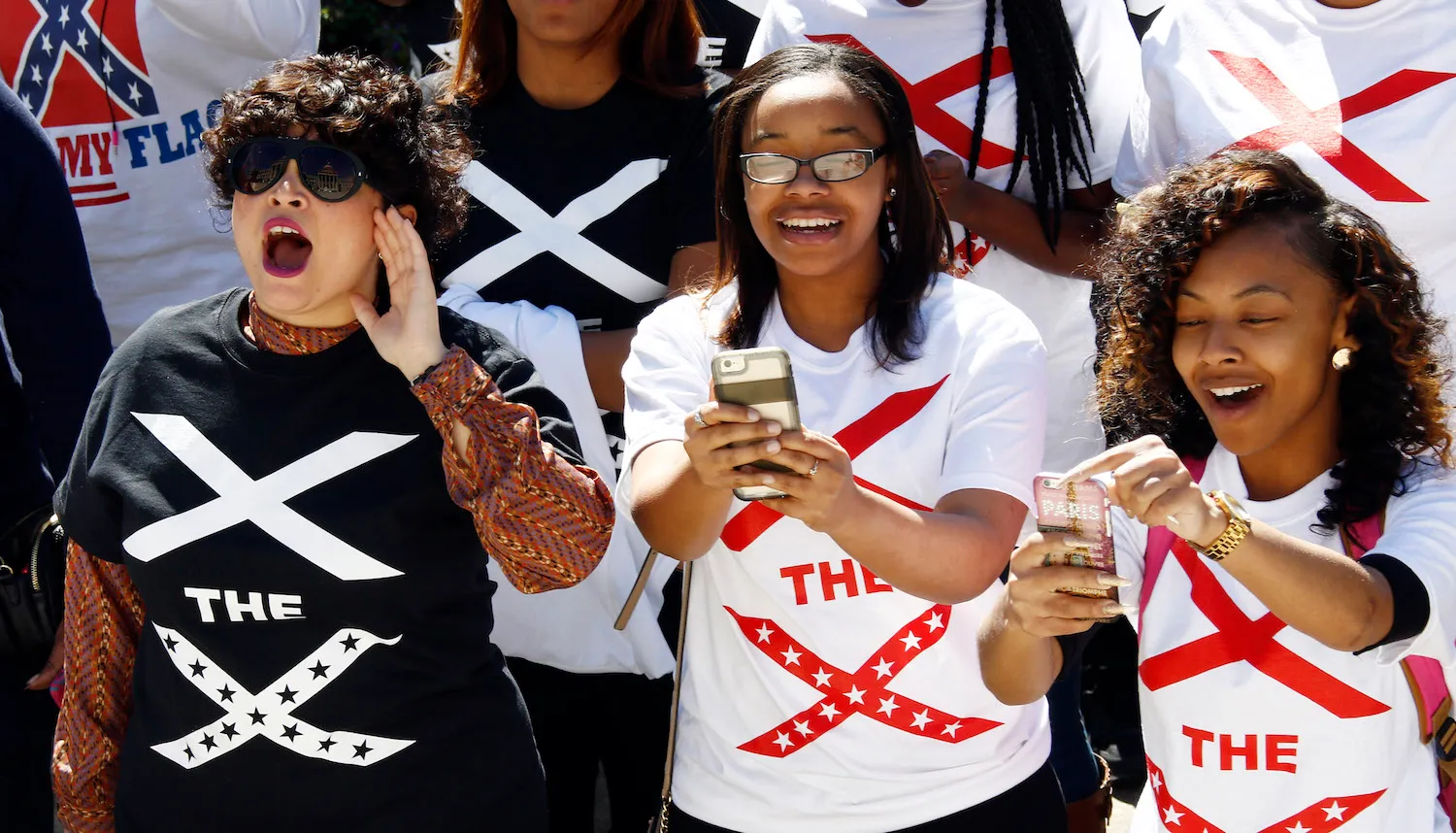
Microaggressions are words or phrases that a person doesn’t mean as offensive, but that can be deemed offensive by an especially sensitive person — or by someone looking for attention by making themselves into a victim. (AP Photo)
“Students go to college to develop their critical thinking skills, and to train them for a civically engaged life in society once they graduate,” Cohn wrote. “Both of those ends require that students learn to hear an opponent out, examine their own beliefs, and argue convincingly against ideas they believe to be wrong.”
President Obama agrees, and has on several occasions told college students that they shouldn’t try to shut down those with whom they don’t agree, but that they should instead “out-argue them” and “make the case as to why they’re wrong.”
So how did we get here?
Several theories exist to explain the current situation in academia.
Some theorize that the problem has become so acute because of this particular generation of students, known as millennials. They have been privileged and coddled through childhood, often raised by “helicopter parents” their whole lives, and then they go to college expecting the same treatment.
Another theory is that colleges themselves have evolved to create this atmosphere. Donald Downs, the Alexander Meiklejohn professor of political science, law and journalism at the University of Wisconsin-Madison told the Washington Examiner that colleges have become “insular,” which keeps them from responding to outside criticism the way businesses dependent on customers must.
Beyond that, Downs said, a feeling of “self-righteousness” has taken hold at colleges across the country.
“The universities think: ‘We’re so virtuous, you know, because we do the academic thing and we care about the world and we tend to be very one-sided politically; that we’re the progressive beacon for America,'” Downs said. “And that kind of self-righteousness, I think, contributes to our insular behavior because we’re less willing to learn from others and our critics.”
Downs added that, as colleges and universities have become more expensive, students have come to feel more entitled — believing they “feel like it’s their right to be protected from upsetting things, whereas dealing with upsetting things is part of maturation.”
Add to this the fact that many of today’s professors are yesterday’s campus radicals, and one can see how such a skewed worldview would be passed on to students looking for parent-figures away from home.
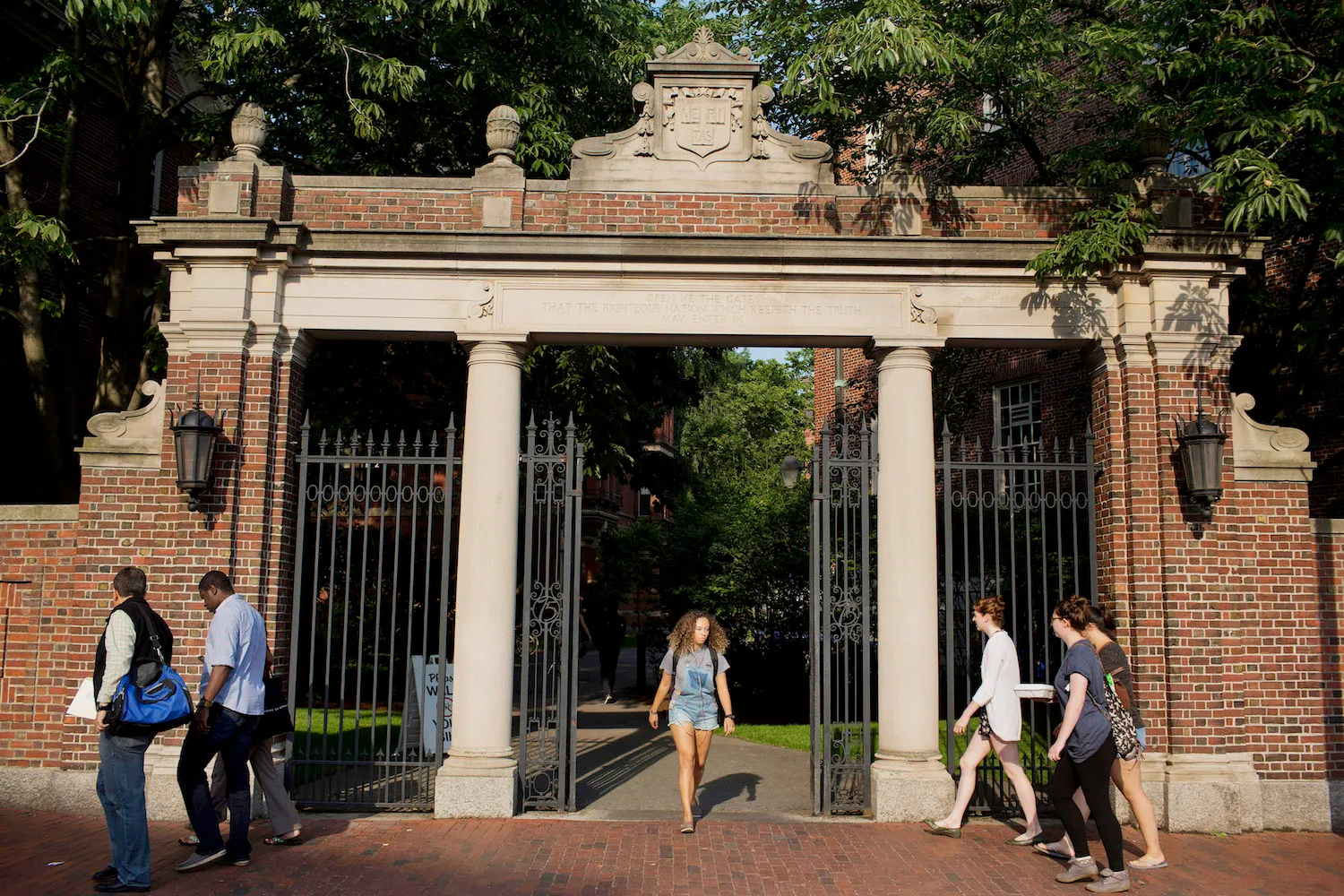
Many of today’s professors are yesterday’s campus radicals, and one can see how such a skewed worldview would be passed on to students looking for parent-figures away from home. (AP Photo)
Still another theory, which retired professor Alan Dershowitz brought up in an interview, is backed by the grotesque yet hysterical tendency of millennial justice warriors to compare themselves favorably to past civil rights heroes. At heart, they just want to be a part of something bigger than themselves, just as students of others generations did.
But they have been doomed to live in the wrong era. They want to be remembered as the heroes of their own age, but without suffering any of the violence, terrorism and open discrimination that the heroes of past movements faced.
At Oberlin, student activist Jasmine Adams told the New Yorker that the current generation is more inclusive than the movement of the ’50s and ’60s.
“Also, we’re the generation that has more identities to encompass in our movement,” Adams said. “No shade to civil rights, but it was a little misogynistic. It had women in the back. A lot of other identities — trans folks and all that — were not really included. And we’re the generation that’s trying to incorporate everybody.”
Some of Adams’ fellow activists even lamented that they are not being financially compensated for their activism.
What they don’t realize is that the movement they are creating now has turned into a parody of great movements of the past. Students now use racism to denounce racism. They fake hate crimes in order to “start a dialogue.” They seek out racism and sexism where it doesn’t really exist, simply in order to banish the views of others and frame themselves as victims worthy of attention.
What’s next?
“I think it’s going to get much worse,” Dershowitz said of the campus protests, adding that campus administrators “don’t have the courage to stand up to spoiled student brats.”
Dershowitz said the only encouraging thing he’s seeing on campuses these days was that liberals and centrists are coming together to condemn the behavior. He warned current student protesters that they were “shooting themselves in the foot” with their ever-more ridiculous demands, because “when the pendulum swings, it will swing back.”
So far it appears that right-leaning media have been the first to call out activist absurdity. When the protests began at the University of Missouri last fall, they pounced quickly on footage of a liberal professor, Melissa Click, assaulting a student journalist and calling for some “muscle” from the crowd to take care of him for filming the protests and asking questions.
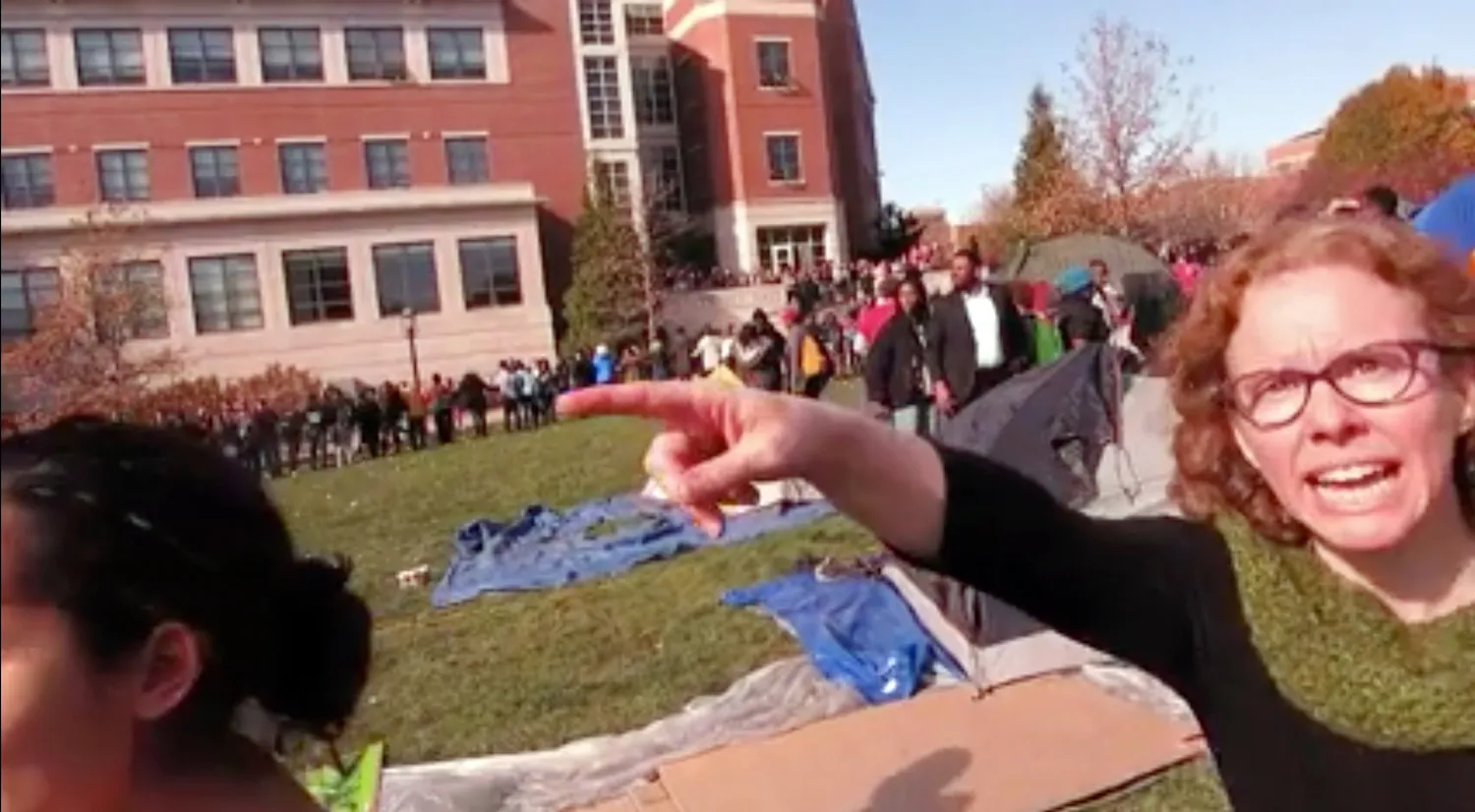
When the protests began at the University of Missouri last fall, right-leaning media pounced quickly on footage of a liberal professor, Melissa Click, assaulting a student journalist. (AP Photo)
It took some time for mainstream media outlets even to notice the controversy, which ultimately resulted in Click’s firing.
Prior to that, the Mizzou protestors’ claims of systemic racism had been largely taken at face value, without any questions as to what kind of racism the students actually experienced.
Now there are multiple news outlets, including the College Fix and Campus Reform, dedicated almost entirely to discussing the ridiculousness of college campus environments today. And from National Review to Fox News, other right-leaning outlets are highlighting the demands and temper tantrums from activists.
We may have seen an increase in campus silliness in the past year, but things are likely to get worse. Student protests achieved multiple victories — from getting presidents and administrators to resign to getting their schools to commit millions more to “diversity training.”
They’ve found a way not only to make elite universities grovel and accept the ridiculous idea that they are hotbeds of racism and sexism, but they’ve also figured out how to make the universities pay for it. Why would the activists stop when they keep winning?
For Mizzou, the fallout from the petty demands has been staggering. The school has lost millions amid slumping enrollment. The protests really caught fire when student Jonathan Butler went on a hunger strike to protest alleged incidents of racism (the only proven incident that anyone can cite was that a swastika was drawn on a wall with feces in a bathroom stall).
Students also complained about the school president not sufficiently acknowledging their feelings about the shooting death of Michael Brown, which was wholly unrelated to their education.
The student protesters who led the revolt succeeded only in damaging the school’s reputation with prospective students and their parents. But hey, at least they were in the news, right?
Mark Schierbecker, the student journalist who filmed Mizzou’s Melissa Click, told the Examiner the students were afraid to speak the truth at first out of respect for Butler.
“It took a while, but I think people eventually saw through the deception that 11 students could speak for all black people on campus,” Schierbecker said. “I think people were afraid to admit it then, but with Jonathan Butler’s life on the line, who wants to be the guy that collapses their narrative?”
How do we resolve the situation?
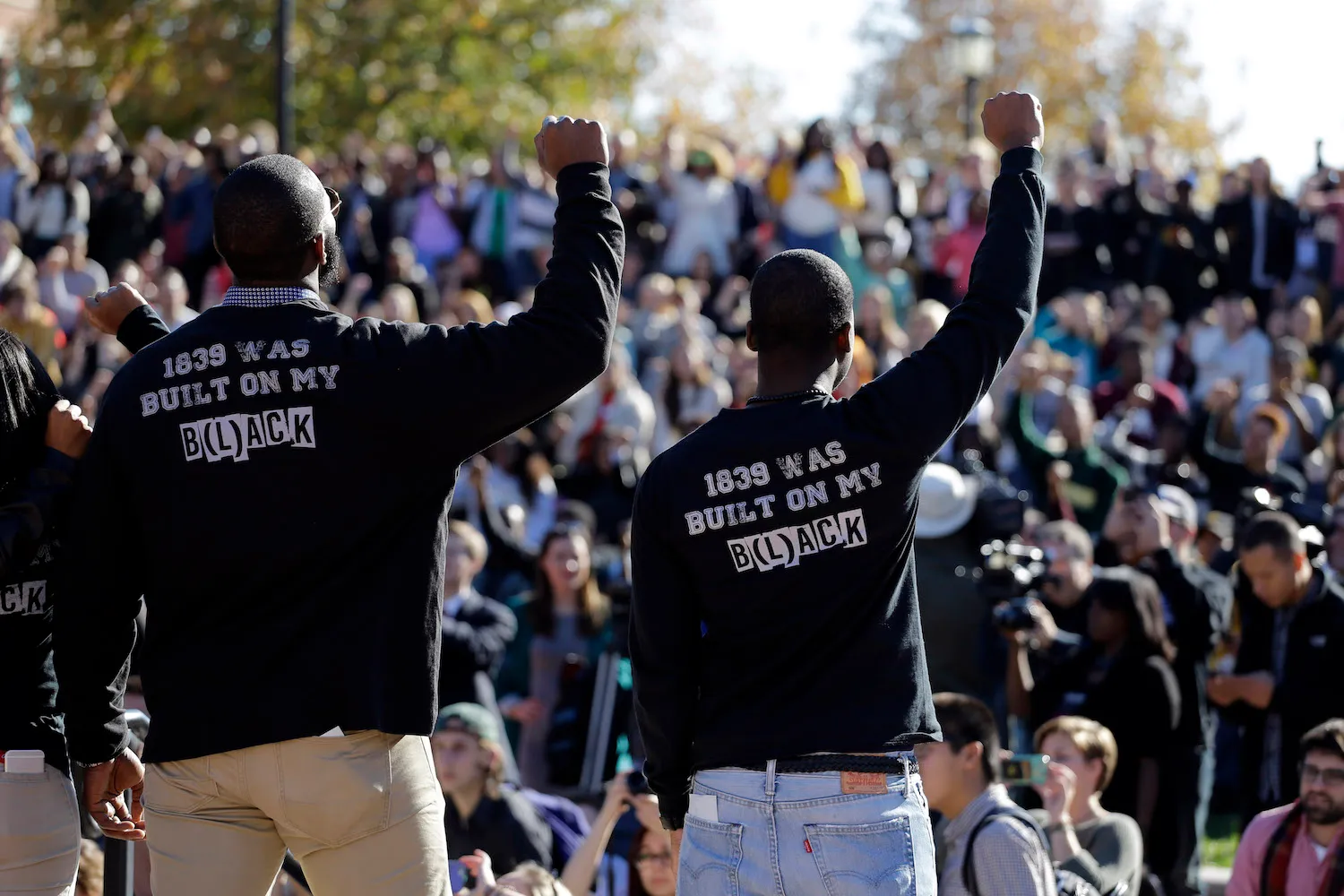
Activists have found a way not only to make elite universities grovel and accept the ridiculous idea that they are hotbeds of racism and sexism, but they’ve also figured out how to make the universities pay for it. (AP Photo)
With so many professors and media observers sure that the protests will get worse this coming fall, what can students and administrators do who don’t believe in stifling free speech or inventing campus racism and sexism problems?
The answer is simply that those who disagree with the prevailing narrative that America’s most privileged and progressive environments are awash with racism and sexism must stand up to the bullying, and insist on keeping universities free, open and liberal (in the classical sense) places of discussion and learning.
“On most campuses, most faculty members are not sympathetic to the fascistic elements who want to crack down on, and even shut down, dissenting speech,” said Robert P. George, McCormick professor of jurisprudence at Princeton University.
“Too few, however, have the courage to stand up to them. Until they muster that courage, the forces of illiberalism will be conditioned by the success of their intimidation tactics in silencing dissent to keep it up.”
FIRE’s Ari Cohn said students can help the situation by standing up for free speech — especially speech they disagree with. Students can also engage in the marketplace of ideas and participate in robust but respectful debates in order to prove the value of free speech. Cohn said faculty and administrators also had a role to play in ending the wave of immaturity on campuses.
“First, they must stop acquiescing to disinvitation demands,” he said. “When students learn that it is easier to have a controversial speaker disinvited than it is to debate their ideas, it’s no wonder they often call for disinvitation — it works, after all. Second, they can educate students on the importance of free and open discourse, of critical thinking, and of rigorous debate. Third, and relatedly, they can repeal their speech codes.”
Schierbecker added that Mizzou might be taking steps to stop another protest like the one from last fall from occurring again.
“This month, some of Mizzou’s top law scholars recommended that Mizzou enforce bans on disruptive protests,” Schierbecker said. “If their recommendation makes policy, I could see an end to the rule by protest we saw in the fall.”
That would include a decades-old rule against students camping overnight on school grounds, which would have made it harder for a protest to create so much disruption.
But there’s still no substitute for helping students learn to stop whining and start growing up.
Ashe Schow is a commentary writer for the Washington Examiner.
